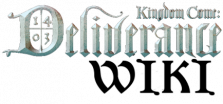The term ‘charity’ was understood as good works to one’s brethren. Christian iconography depicts charity as a Pelican, feeding its young with its own flesh. Society, inspired by the teaching of the Church and Old Testament stories, showed compassion by giving alms, free medical aid, food and wine to the poor or travellers, sometimes even to the exiled. It was deemed that such acts of mercy secured salvation and a place in Heaven, and were more about formally securing indulgences, rather than being spontaneous acts of mercy. The Church often founded hospitals, hostels and hospices, as well as granting pardons to prisoners. Paupers were allowed to beg outside churches and to visit the baths at the town’s expense at least twice a year.
Abbots Of Sasau Monastery
•
Abduction Of Prokop Of Luxembourg
•
Abduction Of Wenceslas Iv
•
Albert Iv Of Habsburg
•
Alchemy
•
Animal Husbandry
•
Armour
•
Armoury
•
Astrology
•
Avicenna (Ibn Síná)
•
Bailiff And City Council
•
Baker
•
Baptism
•
Baths And Bathmaids
•
Beekeeping
•
Beverages
•
Blacksmith
•
Books And Libraries
•
Burghers
•
Burglars And Robbers
•
Burial
•
Butcher
•
Carpenters And Joiners
•
Carts And Wagons
•
Charcoal-Burner
•
Charity
•
Charles Iv
•
Chronicles
•
Churches
•
Clothing And Fashion
•
Combat Technique
•
Conciliation Crosses
•
Counterfeiting
•
Courtliness
•
Crime And Punishment
•
Diseases
•
Drinking Water
•
Dugout Shelters
•
Ecumenical Council
•
Entertainment And Games
•
Executioner
•
Fabrics
•
Faith And Devotion
•
Farmer
•
Farming
•
Feudalism
•
Fisherman
•
Folk Songs
•
Food
•
Foreigners
•
Forgery
•
Frescos
•
Furniture
•
Gardens
•
Gord
•
Gothic Architecture
•
Gravedigger
•
Greetings
•
Guilds And Crafts
•
Healing Herbs
•
Heinrich Iii Von Rosenberg
•
Henry Of Leipa
•
Heraldry
•
Horse-Riding
•
Hospitals And Almshouses
•
Houses And Dwellings
•
Hroznata Of Uhzitz And Husitz
•
Huntsman
•
Hygiene
•
Invective
•
Jail
•
Jan "birdie" Ješek
•
Jan Of Předbořice
•
Jan Ptáček (Hans Capon)
•
Jews
•
Jobst Of Moravia
•
John Hus
•
John Ii Of Liechtenstein
•
John Of Jenstein
•
John Sokol Of Lamberg
•
Journeymen And Apprentices
•
Kitchens
•
Knighthood Training
•
Konrad Kyeser
•
Kuttenberg
•
Land Army
•
Language And Literature
•
Ledetchko
•
Liturgical Items
•
Liturgy
•
Locks
•
Locksmith
•
Malters And Brewers
•
Merchant
•
Merhojed
•
Millers
•
Miners And Mineworkers
•
Money
•
Morgue
•
Municipal Finances
•
Music
•
Names And Surnames
•
Necronomicon
•
Neuhof
•
Otto Iii Of Trosky, Called Bergow
•
Otto Iv Von Bergow
•
Paganism
•
Painter
•
Pennants And Banners
•
Pharmacist
•
Pillory
•
Pope
•
Pope Benedict Xiii
•
Pope Boniface Ix
•
Pope Clement Vii
•
Pope Urban Vi
•
Prayer
•
Priest
•
Prokop Of Luxembourg
•
Prostitution
•
Racek Kobyla Of Dvojitz
•
Rathouse And Town Hall
•
Rattay On Sasau
•
Roman Catholic Church
•
Rovna
•
Rupert Iii Of The Palatinate
•
Safe Conduct
•
Saint Procopius
•
Samopesh
•
Sasau Monastery
•
Sasau Town
•
Schools
•
Scribe
•
Shepherd
•
Sigismund Of Luxembourg
•
Sir Divish Of Talmberg
•
Sir Hanush Of Leipa
•
Sir Markvart Von Aulitz
•
Sir Smil Flashka
•
Skalitz
•
Skalitz-Sasau District
•
Slaughterhouse
•
Smuggler
•
Sources Of Light
•
St. Wenceslas' Crown
•
Stonemason
•
Swordsmiths And Armourers
•
Tailor And Draper
•
Talmberg
•
Tanner
•
Taverns, Inns And Innkeepers
•
The Battle Of Kosovo
•
The Battle Of Nicopolis
•
The Conquest Of Kuttenberg
•
The Devil's Furrow
•
The Golden Age Of Charles Iv
•
The Lords Of Talmberg
•
The Ronov Family
•
The Sacking Of Skalitz
•
The Western Schism
•
Tithes
•
Toilets
•
Tools
•
Tournaments
•
Town Garrison
•
Town Gates
•
Towns And Cities
•
Travel And Travelling Merchants
•
Trebuchet
•
Trial By Ordeal
•
University
•
Uzhitz
•
Venoms And Poisons
•
Vilem Zajíc Of Valdek
•
Village
•
Vranik
•
Waldensians
•
Water Mills
•
Water-Driven Sawmills
•
Weapons
•
Wenceslas Iv
•
William I Of Meissen
•
William Of Talmberg And Miličín
•
William The Courteous Of Habsburg
•
Windmills
•
Winegrower
•
Witchcraft
•
Women In The Middle Ages
•
Woodcutter
•
Woods
•
Zajíc Family Of Zaluzh And Hasenburg
•
Zbyněk Zajíc Of Hasenburg
